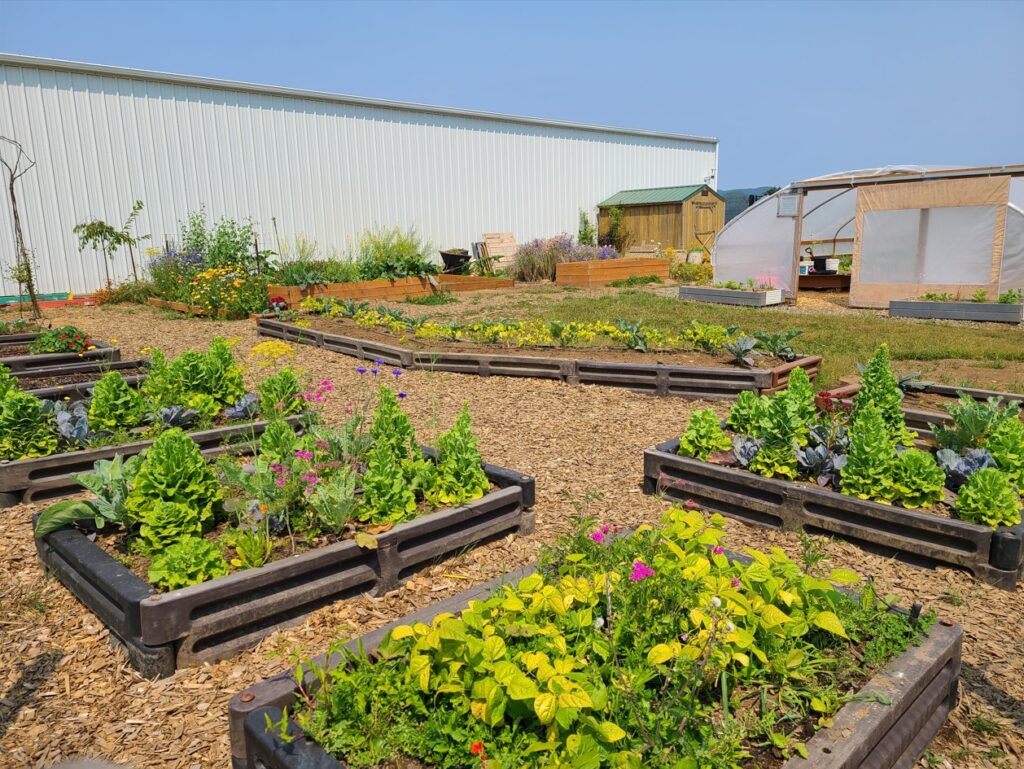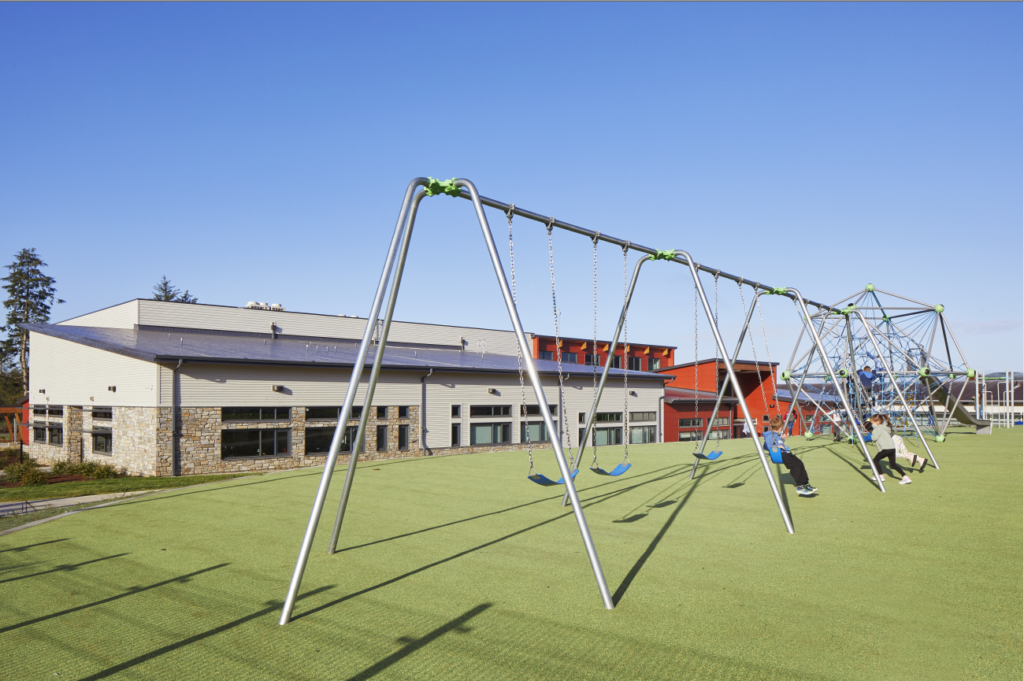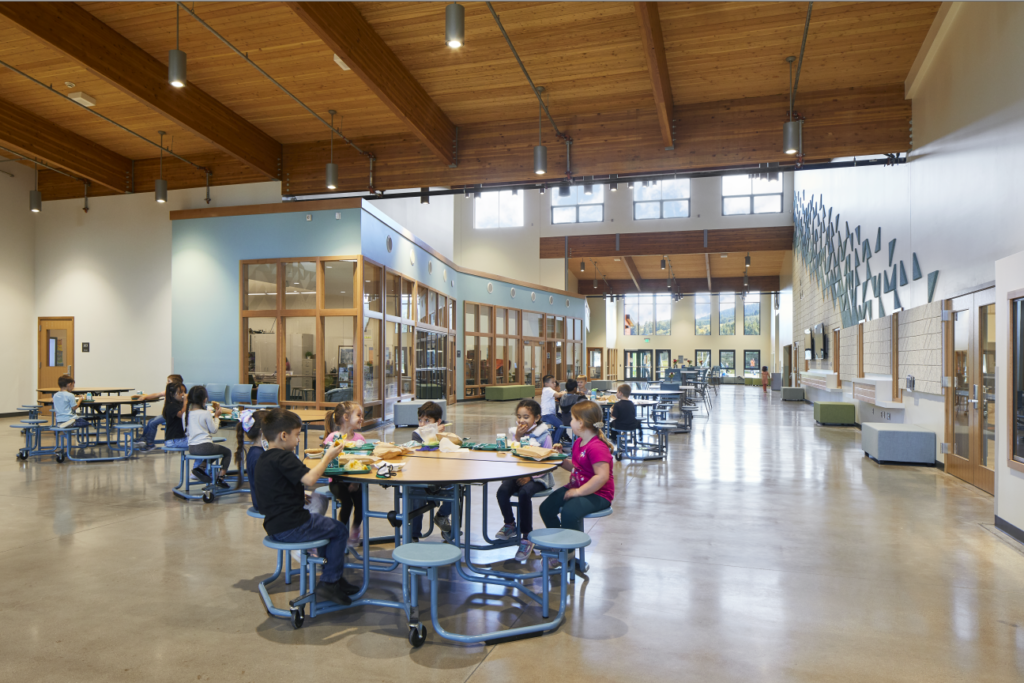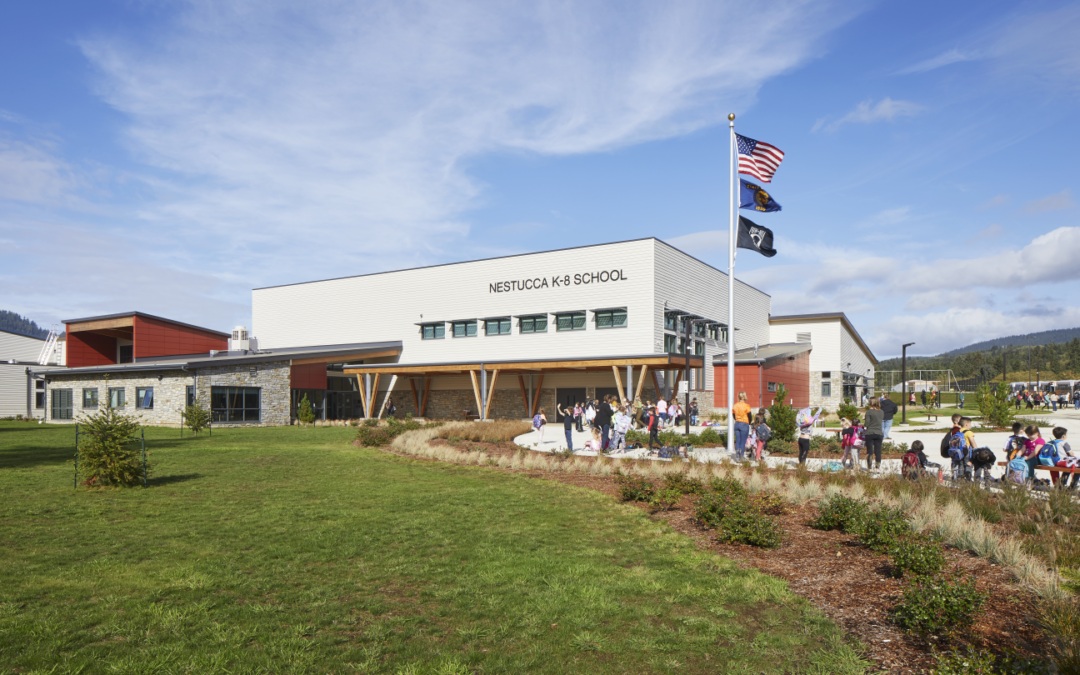Area schools are integrating health and wellness in innovative ways. Nestucca School District is doing this through a science-based, school nutrition curriculum and on-site garden.They also recently received a grant for a school-based health clinic and are expanding outdoor play areas with bike paths and a bike skills park that will also be open to the public.
Tillamook County Wellness interviewed Nestucca School District Superintendent, Misty Wharton and K-8, CTE and Community Resource Specialist, Rachel Pettit, to learn more about their unique approach to whole-student learning.
Science & Nutrition Curriculum

With a full-time garden coordinator and K-5 science teacher, students experience hands-on education every day with a focus on agriculture, not only learning where their food comes from but also growing that food themselves. According to program coordinator Rachel Pettit, “Kids love the school garden and anything that takes them outdoors to learn.” Using art, journaling and scientific inquiry, students are developing critical thinking skills and enjoying the process of learning and discovery. Rachel notes that, during the year and over summer school, students were able to dig deep and build their observation and communication skills. “Now some of those students are asking incredible questions,” she stated.
In addition to the school garden, the science curriculum includes an outdoor classroom and wellness trail with native plants. Misty Wharton explains that the curriculum design means students are always learning, “Every environment is a learning environment, not just the classroom.” Wharton emphasizes the importance of students getting a well-rounded perception of their world. Through this approach, they become more aware of larger ecosystems and how to be good stewards within them. She goes on to say, “I always hope it ignites their curiosity about the world, maybe gives insight into career paths they hadn’t thought of before,” noting that students often aren’t aware of careers beyond becoming a teacher, police officer or firefighter.
Since September 1st, they have harvested 357 pounds of school garden produce that has gone to the cafeteria, including 80 pounds of potatoes harvested by classroom students and later enjoyed in breakfast burritos. Both Pettit and Wharton agree that students are having fun. They also note that, by growing the food themselves, students are willing to try foods they otherwise would not be willing to try. The school garden was relocated during recent renovations and with the garden gate now next to the school playground, students regularly visit and check on their garden.
Raising a garden takes a lot of time and attention. Rachel manages the garden, working year-round except for a break in January. This spring, she worked with a middle school class (Intro to Agriculture elective course) where the students came in one day a week, helped grow all of the transplants in the garden, and got to take extras home at the end of the school year. Rachel maintains the garden in the summer and works with kids to plant and harvest during the 4-week summer school program. “What I think is really exciting,” says Rachel, “is when kids are asking me what is growing in the garden and then help me harvest some cucumbers, and then I see the same kids in the cafeteria later that day and they’ve got a cup of cucumber slices off the salad bar, crunching away, talking about how beautiful the garden is.”
It was also noted that, even though we live in such an agricultural and naturally beautiful place, a lot of local students are not getting out and exploring the natural world. Many students don’t have easy access to these experiences and so having that on the school grounds and part of daily teaching reduces barriers and introduces students to new activities, skills and interests.
Outdoor Play & Physical Activity

In addition to the outdoor classroom environments, Nestucca School District has made significant investments in outdoor play areas. In the same way that nutrition is built into the science curricula, physical fitness is incorporated through activities kids can enjoy in and out of school. When asked why such a focus has been placed on creating outdoor movement opportunities, Misty says, “I grew up in this community, and there’s not a lot of structured environments for kids to play in a safe, healthy way. There was no existing playground that served the entire community before this one.” The new playground is open to the public, where kids can come after school, on the weekends, and in the summertime with their families. Going beyond the traditional school playground, they have had a bike skills park engineered and are fundraising to expand that project. According to Misty, “There’s no safe place for kids to ride their bike in this community, I was always shocked by how many kids didn’t have a bicycle.”
To change that, Nestucca is launching a fully-funded “All Kids Bike” project, part of a national PE curriculum where schools are awarded a fleet of bicycles for Pre-K and Kindergartener students. In addition to learning basic skills and safety precautions, the curriculum supports learning readiness in that bike riding strengthens the systems of the brain used in reading and writing. “So, we’re constructing a skills park, called a bicycle playground, and then on top of that, also using a large chunk of the acreage to develop mountain biking trails,” says Misty. “There’s a lot of excitement around it because it’s something people can do their entire lives.” The project has a lot of community support, including from the Tillamook Off-Road Trail Alliance (TORTA) which raised $11,000 for the project at a recent fundraiser. “As an adult, I’m excited for the skills park and mountain bike trails,” said Rachel, who went on to say, “I was an avid bicyclist before I moved to Tillamook and I don’t think I’ve ridden my bike in the almost 6 years I’ve lived here because the roads and highways aren’t safe. And I’m excited to learn how to mountain bike which I’ve never done before.”
The bicycle playground and trail system is a phased project. They will be seeking grants and people can also donate funds at the Nestucca k8 building (36925 hwy 101 s Cloverdale) or by calling 503 392 3194 ext 401.
Student Health & Well-Being

Increasing access to healthy habits at school is wonderful; however, according to local data, many students still struggle with getting enough sleep, managing screen time and overall mental health. The district was recently awarded a grant for a school-based health clinic, which helps to reduce transportation and other barriers to receiving timely care.
They conducted listening sessions last year and are incorporating that feedback into new programs. Misty goes on to say that they want to increase access to drama, theatre and dance, noting it is an area of opportunity to meet student interests.
Misty notes, “Coming out of covid, it’s been super important to get students involved outside of the school day. So, right now for our elementary aged kids, we’re offering two nights of soccer & two nights of flag football. We’re seeing vast increase in participation in the middle and high schools in activities and sports and part of that is we’ve done such an upgrade to our facilities. We have really nice places for the kids to play, they’re proud of it, they’re glad that they’re participating.”
AUTHOR: Michelle Jenck, Adventist Health Tillamook Director of Community Well-Being
Other wellness questions? Email us at info@tillamookcountywellness.org. For more local health and wellness information, visit www.tillamookcountywellness.org or follow Tillamook County Wellness on Facebook and Instagram.

